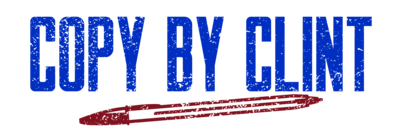Musings
Remembering (My Interview with) Chris Cornell and His Creative Aspiration
On April 27, 2009, I met Chris Cornell in his downtown Seattle Four Seasons suite. His decidedly non-rock record Scream had recently been released and I was there to talk with him about artistry and expectations.
The meeting was a big deal; the publication was small and Cornell was famous. Timbaland had produced him. Trent Reznor had publicly dissed him. Millions had opinions on his chest and his past hairstyles. He had a beefy bodyguard who met me in the well-appointed hotel lobby. He had a handler who hashed out the logistics with me by phone. (This was, endearingly and surprisingly, his wife.)
Cornell was a bona fide rock star, a one percenter even among his elite peers.
And, yes, I was a fan.
Soundgarden and Singles and Euphoria Morning (the known spelling of the time) fandom didn't factor into my experience or interview with Cornell, though. He was one of my musical heroes, yes, but I didn't want to be that guy. I doubt he or his wife or bodyguard would have appreciated it, either.
So his muscle and his spouse stepped out and Cornell and I sat, me facing a wide expanse of Puget Sound mirroring a mostly clear sky, he facing the room perpendicular to me, and talked. He wore a t-shirt and jeans and black, loose-topped boots. He ran a hand through his (again long) hair occasionally. He cordially offered me a bottled water, answered questions, and let his eyes continually sink to the floor.
I was boring the guy. My agreed-upon time allotment was shrinking. Aside from personal, mind-blown awe at the circumstances, I wasn't getting much juice. I hadn't asked anything to elicit a thoughtful, sincere, weighty response from an artist whose gravitas and voice alone had helped change the world.
Not exactly diverging from my planned questions but jumping forward without a graceful segue, I said something about how Scream and Euphoria Morning were alike in that they took you somewhere you didn't expect Chris Cornell to take you. He looked up. He leaned forward from his reclined (disinterested?) pose on the sofa. His eyes widened and locked on mine. The energy in the big, quiet room suddenly zagged like a gull—many of which circled and darted beyond the long wall of windows—spotting a potential snack.
Cornell was engaged.
We talked. He had a lot to say then, and all of it, as far as I could tell, was thoughtful and sincere.
My allotted time vaporized and we continued talking. His bodyguard returned from a side door and we continued talking. Finally, his wife stepped in from an adjoining room and, after we talked for a minute or two longer, she politely sent me on my way. But not before noting that she knew we'd had a good conversation simply because I was still there.
I gathered my notes and things. I shared my gratitude. I left the suite after shooting a last surreptitious look back through the door at Cornell, whom I'd not asked to sign anything, whom I'd not admitted any allegiance to. He was already face-down in his phone, on to the next thing, or maybe just seeking.
When Cornell died in 2017, I couldn't help but think about my 75 minutes or so with the man. How he was clearly driven to create and expand. How he hadn't aimed for surprise but for enrichment, hadn't been trying to prove anything to anyone other than himself. How acknowledging that allowed for a solid, albeit brief, connection to the artist. For precious few moments, we'd seen each other.
The music Chris Cornell left behind—all of it—is timeless. The impression he left on me, not so much. Though that's only because I have an eventual end date just like he did. In the meantime, I'll think about him often. Not just when I hear his voice napalming from a speaker, but whenever I consider the act of creation itself. Whenever I talk with my son about being true to himself.
Whenever I write.
Writing About Legends (Sort of) Writing About Me
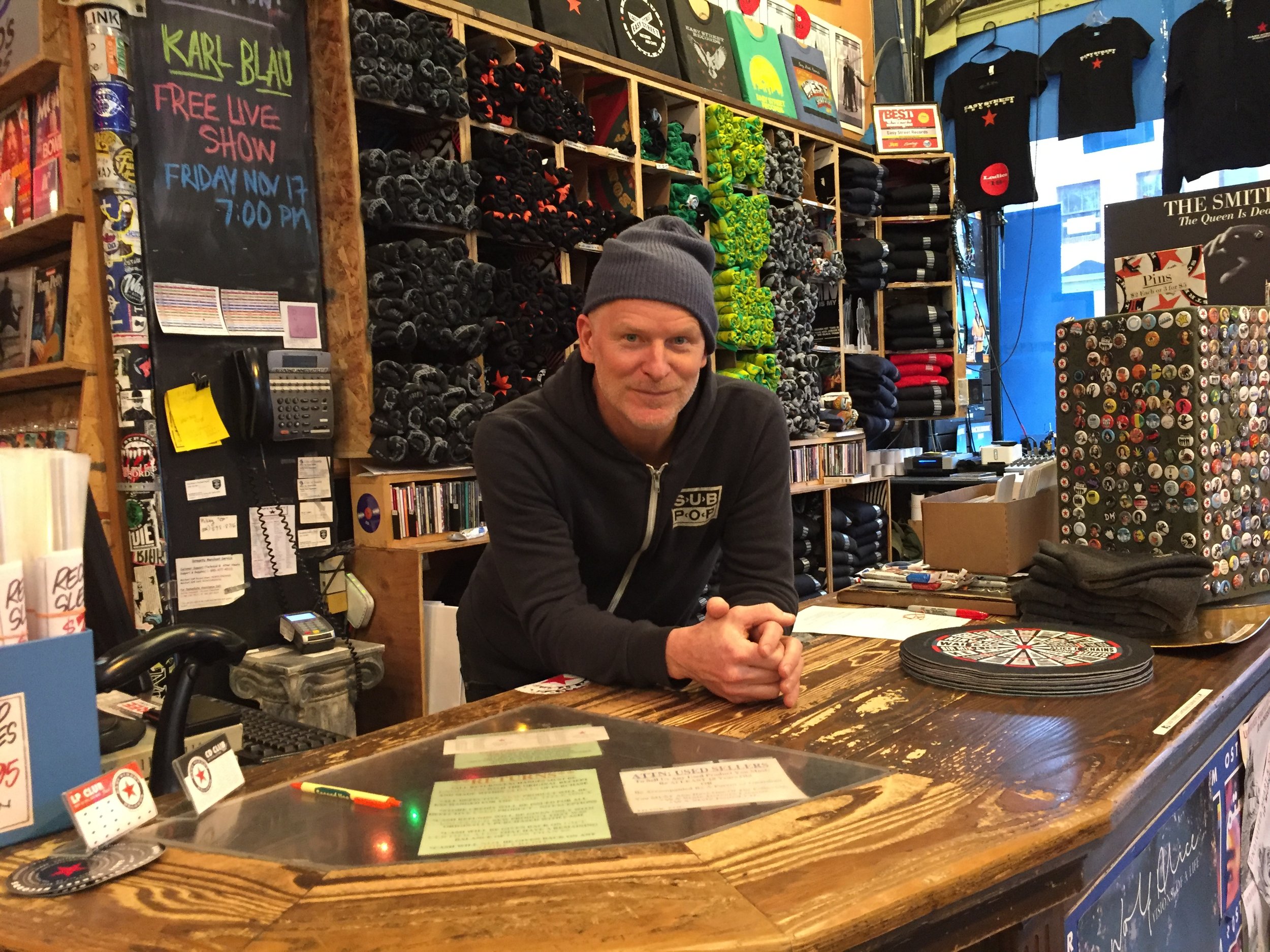
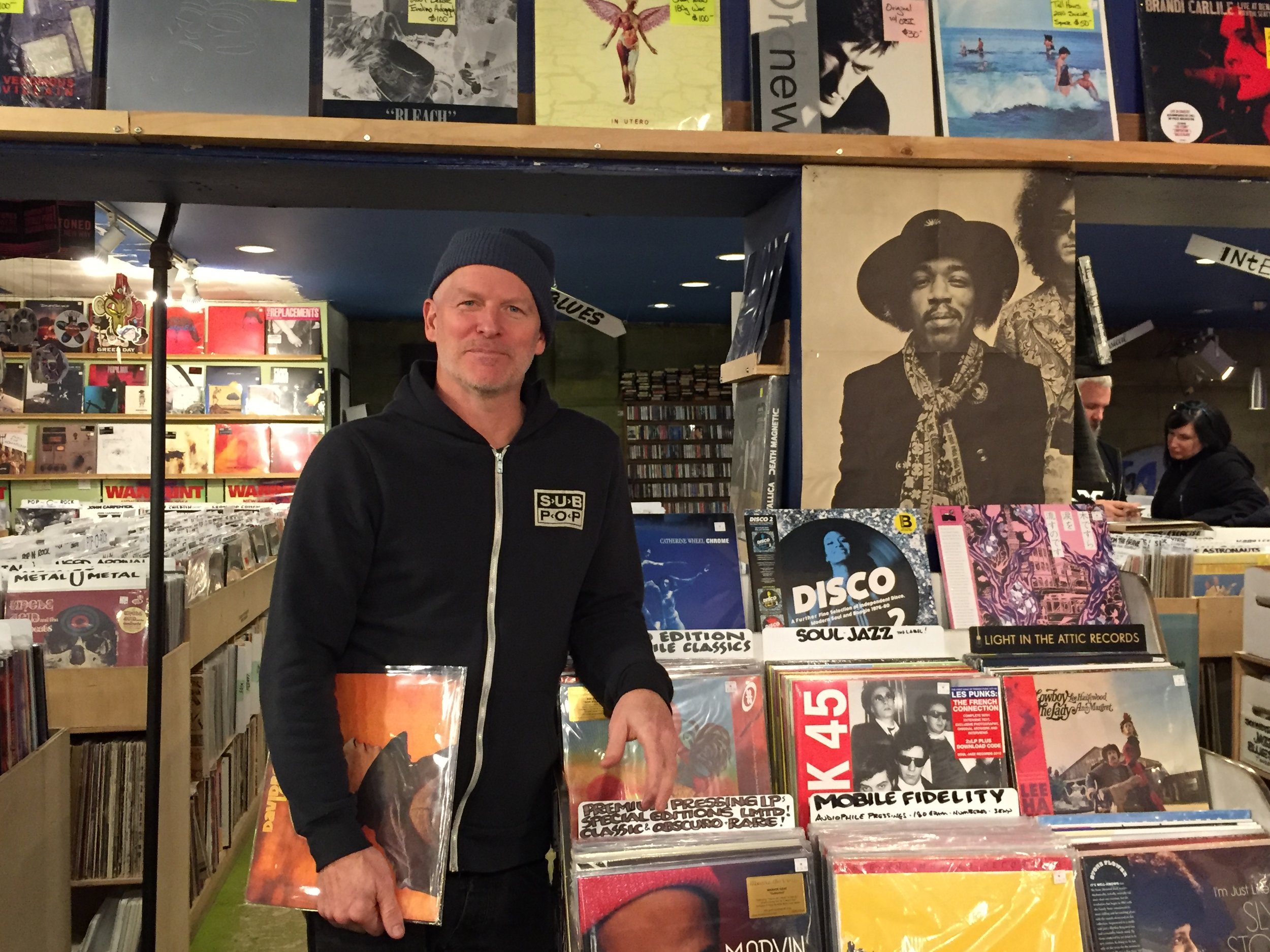
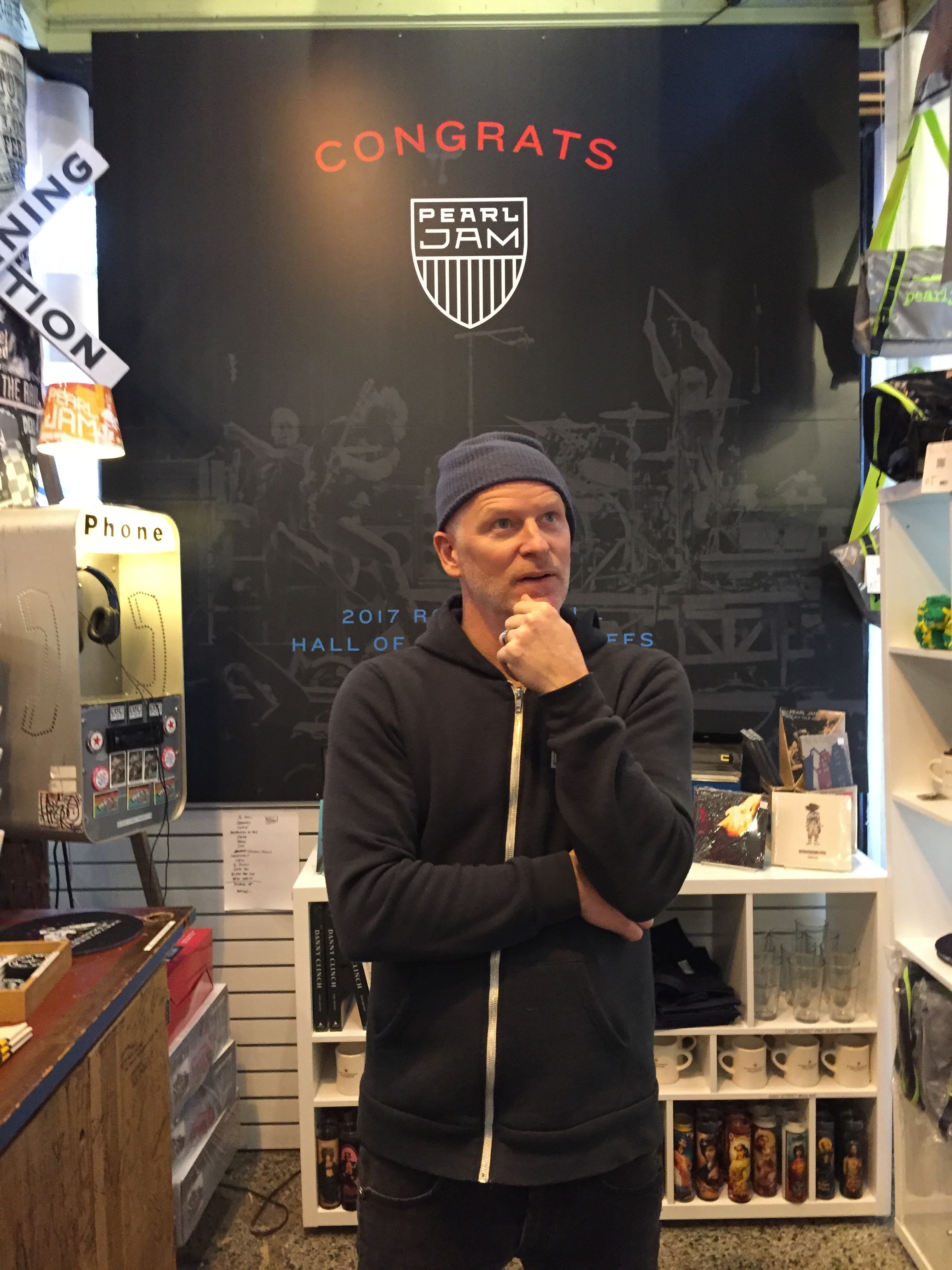
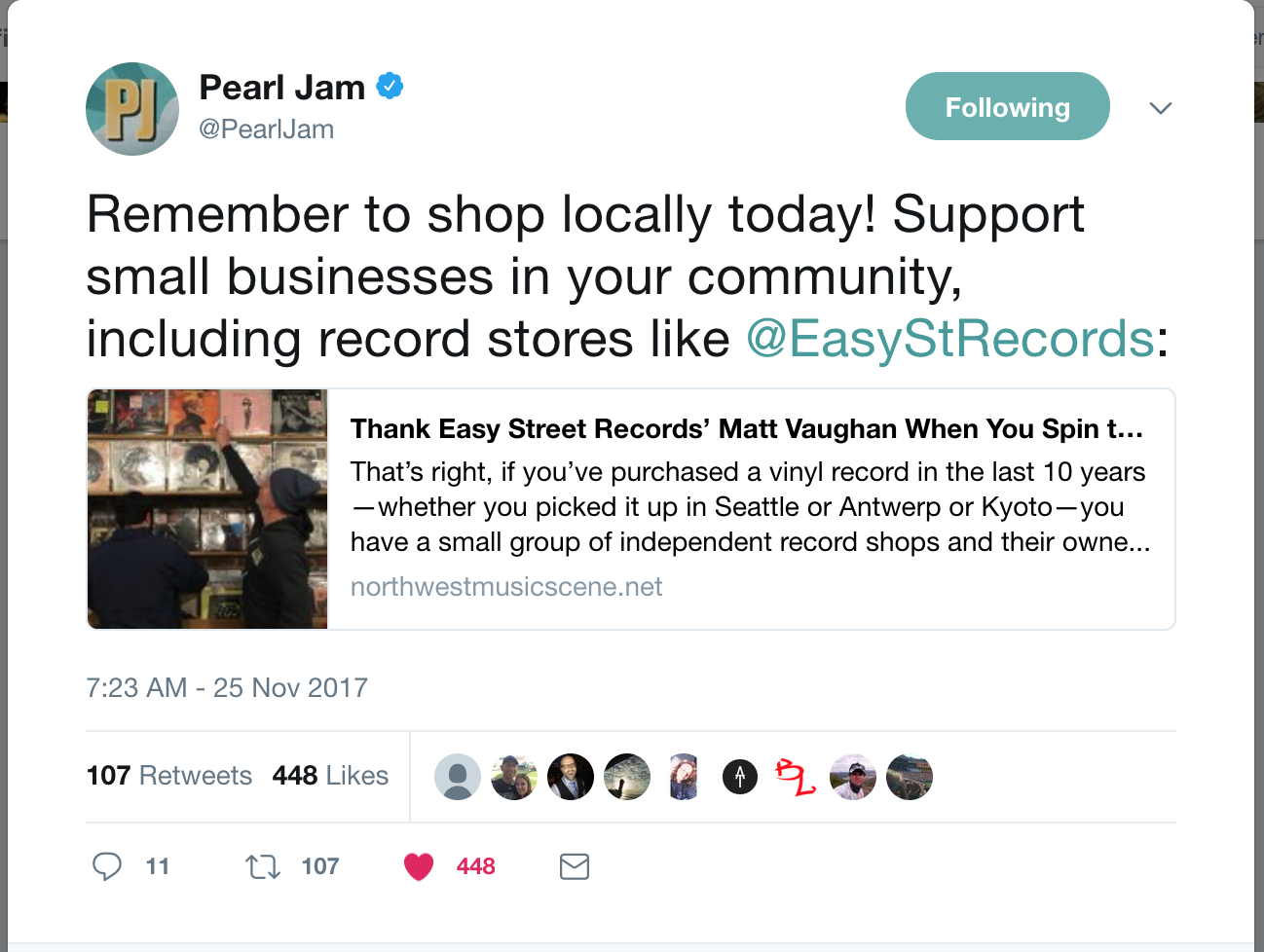
A couple of months ago, I decided I wanted to write a piece on Matt Vaughan, owner of Seattle's Easy Street Records. I felt I had to share how he's a legend in the local music community and one of a handful of people responsible for Record Store Day—and, because of that, responsible for the resurgence of vinyl records. Thankfully, Matt was up for it and Northwest Music Scene agreed to publish the story. So I had the honor of hanging out with the man in his shop, the site of so much history that's precious to this music nerd. It was the best kind of surreal.
The story—"Thank Easy Street Records' Matt Vaughan When You Spin the Black Circle"—quickly got a lot of social love (even from Matt himself), which was nice. And then Pearl Jam tweeted a link to it, which was just plain effing awesome. (I've been a fan since high school. The piece's title is a nod to the band, if you didn't know.) Color me grateful. And a little smarter. I learned that sometimes, when you chase down a writing idea, things can work out quite nicely. It's the little things; they can actually be huge.
